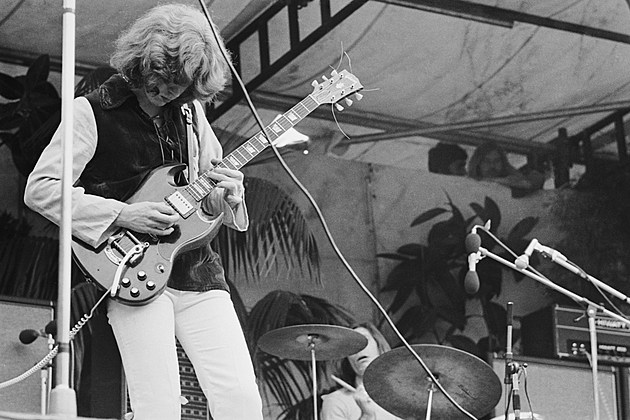39 Years Ago: Mick Taylor Quits the Rolling Stones

Taylor had already been playing with British blues legend John Mayall when the Stones fired Brian Jones due to his drug abuse in June of 1969. Mayall suggested the 20-year-old musician to the group, and he made his live debut with the Rolling Stones at a free Hyde Park show in London, performing in front of 250,000 people.
Taylor went on to record a string of classics with the band, including ‘Let It Bleed,’ ‘Sticky Fingers,’ ‘Exile on Main St.’ and ‘It’s Only Rock and Roll.’ His virtuosic guitar playing brought a very different element to the band, which had previously relied on the rhythmic interplay between Jones and Keith Richards.
“I think he had a big contribution,” Mick Jagger told Rolling Stone in 1995. “He made it very musical. He was a very fluent, melodic player, which we never had, and we don’t have now. Neither Keith nor [Ronnie Wood] plays that kind of style.”
“It was very good for me working with him,” added the singer. “I could sit down with Mick Taylor, and he would play very fluid lines against my vocals. He was exciting, and he was very pretty, and it gave me something to follow, to bang off. Some people think that’s the best version of the band that existed.”
But Taylor was never entirely happy with his participation in the Stones. For one thing he was younger than the rest of the group, and he was keenly aware of the fact that he was not a founding member. On top of that, he was playing far beneath his skill level in the band.
“I just couldn’t believe how bad they sounded,” the guitarist recalled from his first rehearsals with the Stones. “Their timing was awful. They sounded like a typical bunch of guys in a garage — playing out of tune and too loudly. I thought, ‘How is it possible that this band can make hit records?’”
And in typical rock and roll fashion, there were personal and financial issues between Taylor, Jagger and Richards. ”I was a bit peeved about not getting credit for a couple of songs, but that wasn’t the whole reason [I left the band],” Taylor later recalled. “I guess I just felt like I had enough. I decided to leave and start a group with Jack Bruce. I never really felt, and I don’t know why, but I never felt I was gonna stay with the Stones forever, even right from the beginning.”
Jagger told Rolling Stone he thought friction between Taylor and Richards was a prime motivator: “He wanted to have a solo career. I think he found it difficult to get on with Keith.”
Taylor admitted in the recent documentary ‘Crossfire Hurricane’ that he had become addicted to heroin while living in the eye of the Rolling Stones maelstrom and decided to leave to try to protect his family from the band’s caustic lifestyle. On Dec. 12, 1974 the band members were at a party in London when the guitarist broke the news to Mick Jagger and walked out. He was replaced by Ronnie Wood.
The guitarist went on to a long, fruitful career, but never again enjoyed the kind of fame or money that the Stones had offered. Press reports later claimed that he was living in near poverty, but Taylor has maintained that he would make the same decision again, regardless. “It doesn’t necessarily follow that because you’re in a successful rock ‘n’ roll band, you’re going to stay in a situation like that and be satisfied,” he observed. “For me it was personally restricting. I’m not saying that it wasn’t fun. It was a helluva lot of fun; it was great. But I had to move on and do something else.”
In another interview on the Rolling Stones’ official website, he was more to the point. “To ask if I regret leaving the Rolling Stones is to ask the wrong question,” he stated. “The hard one to answer is, do I regret joining them?”



